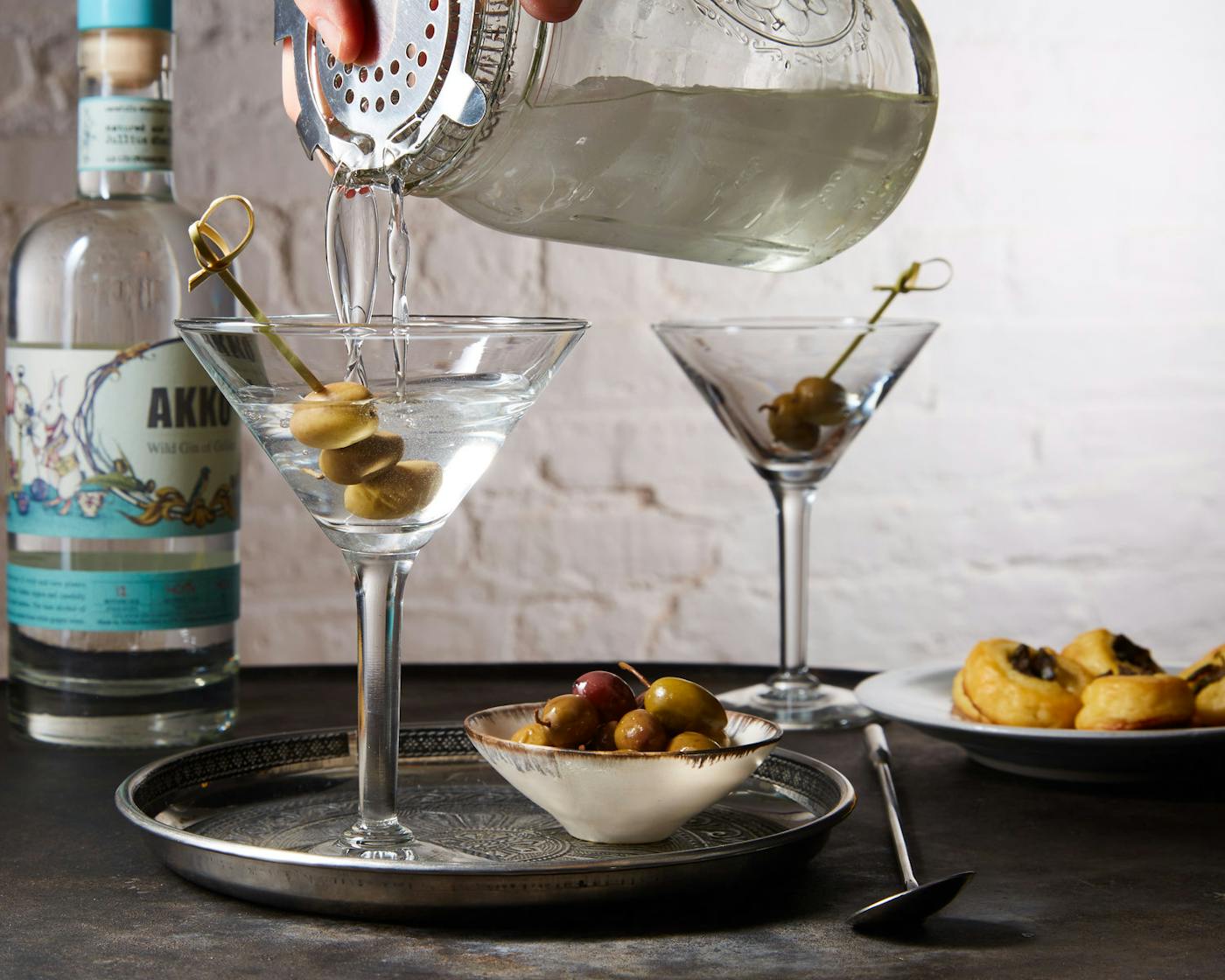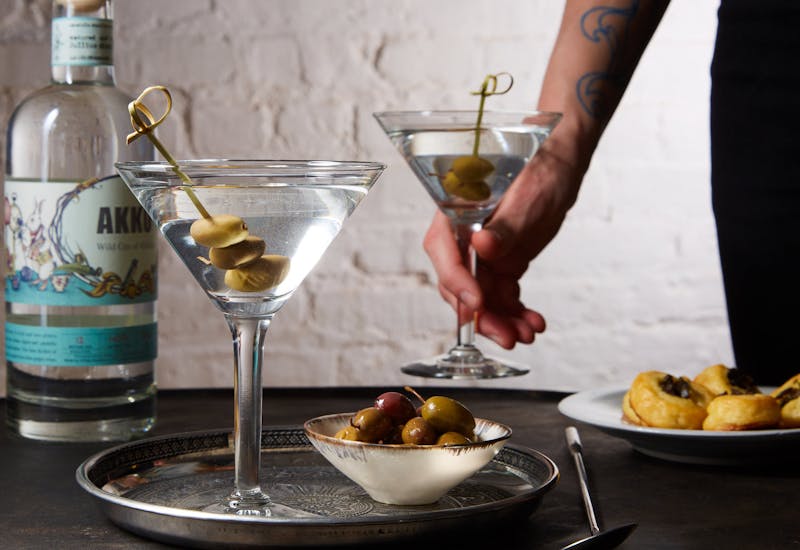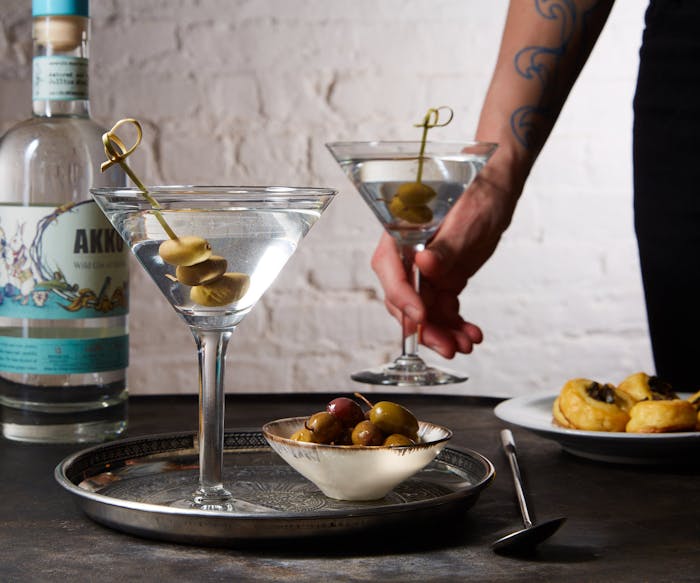When we asked Yuval “Joov” Hargil, the owner of Israel’s first craft distillery Jullius, about family recipes that might pair well with his signature gin, one bubbled to the top of the list: a savory scone laced with olives. The recipe comes from his wife’s late grandmother Hilda, a Hungarian Holocaust survivor, who Joov believes immigrated to the Israeli coastal town of Herzliya in the 1950s.
She originally received the recipe from a Hungarian friend. But little else is known about how or when she started making the scones. Regardless, they became a signature in Hilda’s home, particularly for the spring holiday of Shavuot, which is often celebrated by eating dairy-rich foods.
Even as Hilda reached her 90s, the recipe remained with her. She made it intuitively. Unfortunately, the version that was written and shared in the family may not have been as precise as the one she knew by heart. “We’re trying to recover it,” Joov says of the original recipe.
With the help of a Hungarian Jewish friend and the Encyclopedia of Jewish Food, we were able to uncover that Hilda’s recipe was almost certainly for pogácsa, a savory scone popular in Hungary and made both inside and outside of the Jewish community. As the encyclopedia points out, it’s a recipe little known outside the Hungarian communities in Israel and the U.S.
While many details around the family recipe are still murky, one essential element is clear. Joov explains: “I can tell you for sure the olives in the scones is an ingredient that they put into the recipe the moment they came to Israel.” Olives are bountiful there, growing on hillsides of the central part of the country and in the north where he lives and operates his distillery. “You couldn’t go more northern than this,” he says. In fact, the distillery is only a handful of kilometers from the Lebanon border. It’s an area rich with raw materials for distilling like grapes, apples, plums, and the Galilean botanicals he uses in his bitters and signature Akko Gin like fig and olive leaf.
To pair with Hilda’s savory scones at an event we’re hosting in New York City, Joov’s serving that gin shaken with olive brine and cracked olives — the slightly bitter dark green variety that grow locally. “When you prepare this drink and serve this kind of olive,” he says, “You immediately see it’s something different….something that communicates the place it comes from — the northern Galilee.”
When he opened his distillery there in 2008, he knew this was the only place he wanted to be — 15 minutes from where he grew up. “For me, it was obvious that I should go back to my origins,” Joov says. He did so in more ways than one. “I [come] from a family with roots in the alcohol industry that go back about 150 years,” he explains. His great-grandfather was an alcohol merchant in Poland before the Holocaust, where much of the family perished.
“For me, it was obvious that I should go back to my origins”
Growing up, he says, he often heard stories about that side of the family and his great-grandfather’s work. So, he adds, “When I decided to open a craft distillery it was kind of closing the circle.”


